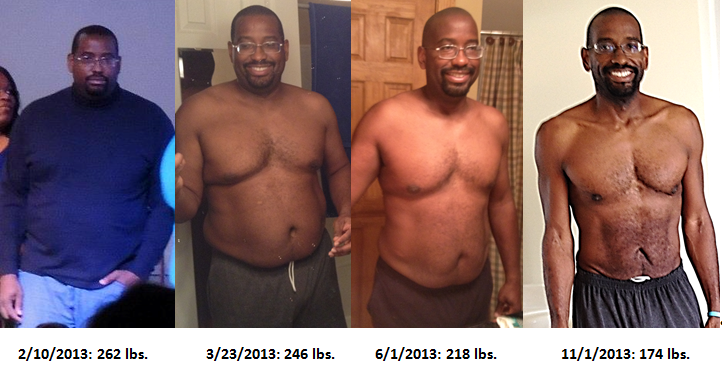
Research is showing that lifestyle choices can have a significant impact on genes. The molecules we surround our genes are not only responsible for our physical traits, but they can also have an impact on their expression. The new study indicates that our environment may impact our genetics. These results have wide-ranging implications. Here is a look at how our lifestyles impact our genes. What are the possible consequences? Let's take a look at what these changes could mean for our health.
Researchers have discovered that certain gene variants are associated with long life. These gene variations play a fundamental role in basic cellular functions like repair of DNA and maintenance chromosome ends. They also include genes affecting the immune system, cardiovascular systems, and blood fat. The cardiovascular system plays an essential role in long-term health, including reducing the risk from heart disease and other diseases. Researchers also discovered that certain gene variants are associated with lower risk of certain cancers.

Some researchers have shown that lifestyle genetics are closely related to cardiovascular health. They have also found evidence that behavioral lifestyle may interact with genetic variants in CAD and other conditions. This is an important relationship that is crucial for our health. Therefore, it is essential to learn about your family's past. This is an essential step toward improving your health. It's even free! Keep in mind: The better you are at knowing, the more you will be able to help others. You should consult a doctor if there are concerns about any particular disease.
The combined effects of genetics and lifestyle are important. These factors can all influence your risk of type 2 diabetes, atrial fibrillation or coronary heart disease. These factors can also influence the risk of developing heart diseases. These results should serve as a guideline for lifestyle changes. You can decline to have this test performed if you are uncomfortable with the information. It is important to consider all factors when attempting to achieve the best health possible.
These findings are not meant to be taken as conclusive proof that genetics and lifestyle have a causal relationship. While genetics are a factor, some studies have shown lifestyle genetics to be able to explain some differences in men and women. The results of these studies are helpful for developing better lifestyle-genetics-related prevention strategies. You'll find out if your family has a high-risk for dementia. You should seek the advice of a doctor if your family is at risk.

Another way to identify your health risks is to take a genetic test. It can show you the likelihood of developing certain conditions. The test will also show if you're a carrier of some gene variations. Your genes could be a contributing factor to your overall health. Researchers discovered that lifestyle genes are an excellent way to study how your genes impact your health. Your risk of dementia can be reduced by living a healthy lifestyle.
FAQ
What's the difference of a calorie versus a Kilocalorie?
Calories refer to units that are used for measuring the energy in food. The unit of measurement is called a calorie. One calorie represents the energy required to raise one gram of water's temperature by one degree Celsius.
Kilocalories can also be used to refer to calories. Kilocalories equal one thousandth of a calorie. 1000 calories, for example, equals one kilocalorie.
Why is it so important to lead a healthy lifestyle
Living a healthy lifestyle can help you live longer and more happy lives. A healthy diet, regular exercise, good sleep habits, and stress management will help prevent diseases like heart disease, diabetes, cancer, and stroke.
Healthy lifestyles will help us to cope with daily stresses better and improve our mental health. A healthy lifestyle can also help you feel and look younger.
What are the best 10 foods to eat?
The 10 best foods to eat include:
-
Avocados
-
Berries
-
Broccoli
-
Cauliflower
-
Eggs
-
Fish
-
Grains
-
Nuts
-
Oats
-
Salmon
How do I get enough vitamins for my body?
The majority of your daily needs can be met through diet alone. Supplements are an option if you are low in any vitamin. You can purchase a multivitamin that includes all of the vitamins you need. You can also buy individual vitamins in your local drugstore.
Talk to your doctor to find out which foods are rich in vitamins. For example, dark green leafy vegetables such as spinach, broccoli, kale, collard greens, turnip greens, mustard greens, bok choy, romaine lettuce, arugula, and Swiss chard are rich in vitamins K and E. Other good sources include oranges, tomatoes, strawberries, cantaloupe, carrots, sweet potatoes, pumpkin, and squash.
Ask your doctor for advice if you are unsure how much vitamin to take. Based on your medical history, and your current health status, your doctor will recommend the right dosage.
What can I do to lower my blood pressure?
Find out the causes of high blood pressure first. Then you need to take steps to reduce this cause. These could include taking medication, eating less salt and losing weight.
It is important to ensure that you get enough exercise. You can also walk if you don’t have the time.
A gym membership is a good idea if you don't like how much exercise your doing. You will likely want to join an exercise group that shares your goals. It's easier to stick to an exercise routine when you know someone else is going to see you at the gym.
Statistics
- According to the Physical Activity Guidelines for Americans, we should strive for at least 150 minutes of moderate intensity activity each week (54Trusted Source Smoking, harmful use of drugs, and alcohol abuse can all seriously negatively affect your health. (healthline.com)
- WHO recommends reducing saturated fats to less than 10% of total energy intake; reducing trans-fats to less than 1% of total energy intake; and replacing both saturated fats and trans-fats to unsaturated fats. (who.int)
- WHO recommends consuming less than 5% of total energy intake for additional health benefits. (who.int)
- This article received 11 testimonials and 86% of readers who voted found it helpful, earning it our reader-approved status. (wikihow.com)
External Links
How To
Ten tips for a healthy lifestyle
How to live a healthy life
We live in an era where it is difficult to get enough rest, we eat too often, drink too much alcohol, and use cigarettes. We don’t care enough about our health.
It can be very difficult for someone who works full-time to have a healthy diet. It becomes even harder if you are stressed out because your mind tells us that we cannot handle this situation anymore so we start feeling guilty and give up.
If you feel like something is wrong with your body, then it probably is. Consult a doctor immediately to get his/her opinion on your current condition. If there is nothing abnormal, then it might just be stress from your job.
Some people think they are lucky because their jobs enable them to regularly go to the gym or have good friends who encourage them to stay fit. They are fortunate. These people have no problems. They control everything. I wish everyone could become like them. Unfortunately, most people don't know the best ways to balance their personal and professional lives. Many people fall prey to bad habits, which can eventually lead them to developing diseases like heart disease, diabetes and cancer.
These are some tips to help you improve your life.
-
You should get 7 hours of sleep per night minimum and 8 hours maximum. This includes proper sleeping positions and avoiding caffeine during the last hour before going to bed. Caffeine blocks melatonin hormones which makes it difficult to fall asleep. You should also ensure that your bedroom has a dark, clean environment. Consider using blackout curtains, especially if working late at night.
-
Good nutrition is key to a healthy lifestyle. Sugar products, fried food, processed foods and white breads should be avoided. Lunch should include fruits, vegetables, and whole grains. A good snack option for afternoon is to include protein-rich snacks like nuts, seeds, beans and dairy products. Avoid junk food like chips, candies and cakes.
-
Get plenty of water. Most people don't drink enough. Water can help us burn more calories, keep our skin supple and young, flush out toxins and improve our digestion. You can lose weight by drinking six glasses of water per day. Checking the color of urine is a good way to gauge your hydration. Yellow means dehydrated; orange means slightly dehydrated; pink means normal; red means overhydrated; and clear means highly-overhydrated.
-
Exercise - Regular physical activity has been proven to increase energy levels and reduce depression. Walking can be a great way to improve your mood. Even though walking looks simple, it requires effort and concentration. Your brain must be able to concentrate on walking, while taking deep breaths and slowing down. A brisk walk for 30 minutes can burn between 100 and 150 calories. Start slow and build up gradually. Stretching after exercise is important to avoid injury.
-
Positive thinking is key to mental health. Positive thinking creates a positive environment within ourselves. Negative thoughts can drain energy and cause anxiety. You can stay motivated by thinking about what you want to achieve. You don't have to take on all of the new tasks at once. Break them down into smaller tasks. It is inevitable that you will fail. But don't worry, just keep trying and get up again.
-
Learn to say No. We are often so busy that our attention is not focused on the important things we are doing. It is important to be able to say No when needed. Being polite when you say "no" does not mean that you are rude. A No means that you can't take care of something now. You can always find other ways to complete the job later. Set boundaries. Ask for help. Delegate the work to someone else.
-
Take care of your body - Keep track of your diet. A healthier diet will help boost your metabolism, and you can lose extra weight. Don't eat too much oily or heavy foods as they can increase cholesterol levels. Good advice is to eat three meals and 2 snacks each day. Aim to consume 2000-2500 calories each day.
-
Meditate - Meditation can reduce stress and anxiety. You can relax your mind by simply sitting still with your closed eyes. This exercise will improve your ability to think clearly and help you make decisions. Meditation can help you be calmer, happier, and more productive.
-
Don't skip breakfast. Breakfast should be the most important meal. Skipping breakfast could cause you to eat too much during lunchtime. It is never too late, so long as you eat your breakfast within one hour of getting up. A healthy breakfast can boost your energy levels and help you control your hunger.
-
Healthy food is the best. Food can have a profound effect on our moods. Avoid junk food, artificial ingredients and foods that are high in preservatives. These foods make your body feel acidic, and can trigger cravings. Fruits and vegetables are rich in vitamins and minerals that improve overall health.